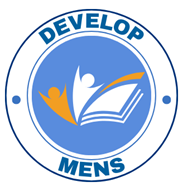Soft skills are a set of personal, social, and communication abilities that influence how effectively we interact with others, solve problems, adapt to change, and navigate everyday challenges. Unlike hard skills—which are technical and job-specific—soft skills are transferable and useful across all areas of life, regardless of profession or industry.
Examples of Common Soft Skills:
- Communication – clearly expressing thoughts and actively listening to others
- Teamwork – collaborating well in groups and contributing to a common goal
- Adaptability – staying flexible and calm in changing situations
- Problem-solving – thinking critically to find practical solutions
- Time management – organizing tasks and meeting deadlines efficiently
- Emotional intelligence – understanding your own emotions and those of others
- Leadership – motivating and guiding others while taking responsibility
Why Do Soft Skills Matter?
1. Employers Look for Them
In today’s job market, employers don’t just hire based on qualifications—they want people who can work well with others, communicate clearly, and handle pressure. In fact, many hiring managers say soft skills are just as important as technical abilities.
2. They Help You Build Strong Relationships
Whether in a workplace, classroom, or community, soft skills help you understand, connect with, and support others. This builds trust and improves collaboration, which leads to better outcomes for everyone involved.
3. They Improve Your Career and Personal Growth
Soft skills like self-motivation, confidence, and adaptability are crucial for handling feedback, managing your workload, and overcoming obstacles. These skills support long-term success, not just in your job, but in your life goals as well.
4. They’re Harder to Teach
While you can learn how to use a tool or software in a few weeks, soft skills are developed over time—through practice, reflection, and real-life experience. That’s why showcasing strong soft skills can set you apart, especially if you’re new to the workforce.
Here’s a list of 20 essential soft skills that are highly valued across all fields and professions:
- Communication – expressing ideas clearly and listening actively
- Teamwork – working well with others to achieve common goals
- Adaptability – adjusting to new situations and challenges with ease
- Problem-solving – finding effective and creative solutions
- Critical thinking – analyzing situations and making informed decisions
- Time management – organizing tasks and meeting deadlines
- Emotional intelligence – understanding and managing emotions, both yours and others’
- Leadership – guiding, motivating, and taking responsibility for group outcomes
- Conflict resolution – handling disagreements respectfully and constructively
- Work ethic – being reliable, dedicated, and self-motivated
- Creativity – thinking outside the box and generating new ideas
- Decision-making – choosing the best course of action with confidence
- Attention to detail – noticing small but important elements in tasks
- Stress management – staying calm and focused under pressure
- Interpersonal skills – building and maintaining positive relationships
- Active listening – fully concentrating on what others are saying
- Self-confidence – believing in your abilities and taking initiative
- Negotiation – reaching agreements that benefit all parties involved
- Resilience – bouncing back from setbacks and staying motivated
- Professionalism – behaving in a respectful, responsible, and ethical manner
Which soft skillset do you have?
Knowing which soft skills you already have is the first step toward improving them and presenting them confidently—whether in a job application, interview, or team setting. Here’s how you can find out:
1. Self-Reflection
Think about your past experiences—school projects, part-time jobs, volunteering, or even social situations. Ask yourself:
- When did I work well with others?
- How do I handle pressure or change?
- Do I take initiative or prefer to follow?
- Am I good at explaining things to others?
Write down examples of times when you showed patience, leadership, empathy, or problem-solving. These are soft skills in action.
2. Ask for Feedback
Sometimes others see strengths we don’t. Ask:
- Friends, teachers, or colleagues: “What do you think I’m good at when working with others?”
- Supervisors or mentors: “Which personal qualities do you think help me succeed?”
Their answers can highlight soft skills you’ve never labeled before (like reliability, creativity, or emotional intelligence).
3. Look at Your Role in Groups
Are you usually the organizer, the motivator, the peacemaker, or the problem-solver? Your role often reflects your dominant soft skills:
- Organizers → time management, responsibility
- Motivators → communication, leadership
- Peacemakers → empathy, conflict resolution
- Problem-solvers → critical thinking, adaptability
4. Match to a Soft Skills List
Review a list of soft skills (like the 20 I gave you earlier). Go through each one and rate yourself:
- 1: Not confident at all
- 2: Somewhat confident
- 3: Confident
- 4: Very confident
Then reflect: Which of these do I show regularly in real life?
Don’t worry if you don’t “have them all.” Soft skills are not fixed—they develop over time. Once you’re aware of what you’re good at and where you want to improve, you can actively practice, seek feedback, and grow your skillset.
Final Thoughts
In a world that’s constantly changing, soft skills are your anchor. They help you communicate better, think clearly, work in teams, and adapt to new situations. Whether you’re applying for your first job, joining a new team, or trying to grow personally, soft skills are the foundation that supports every step you take.


